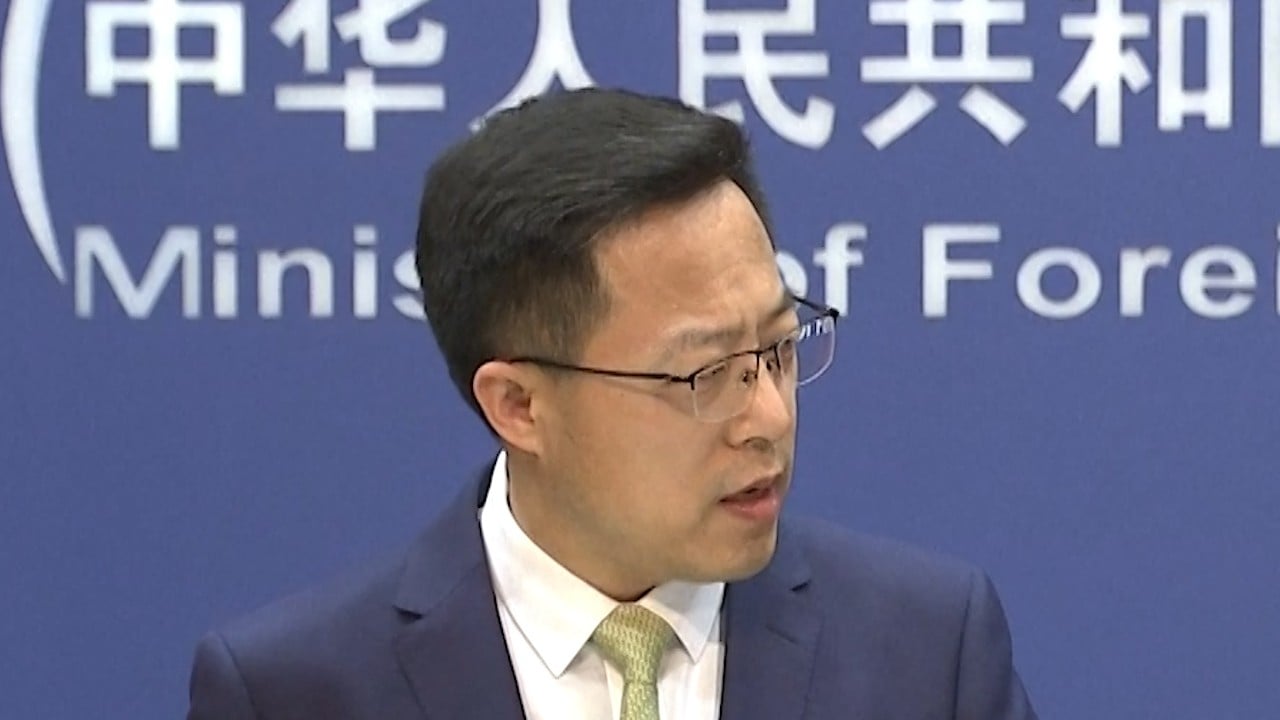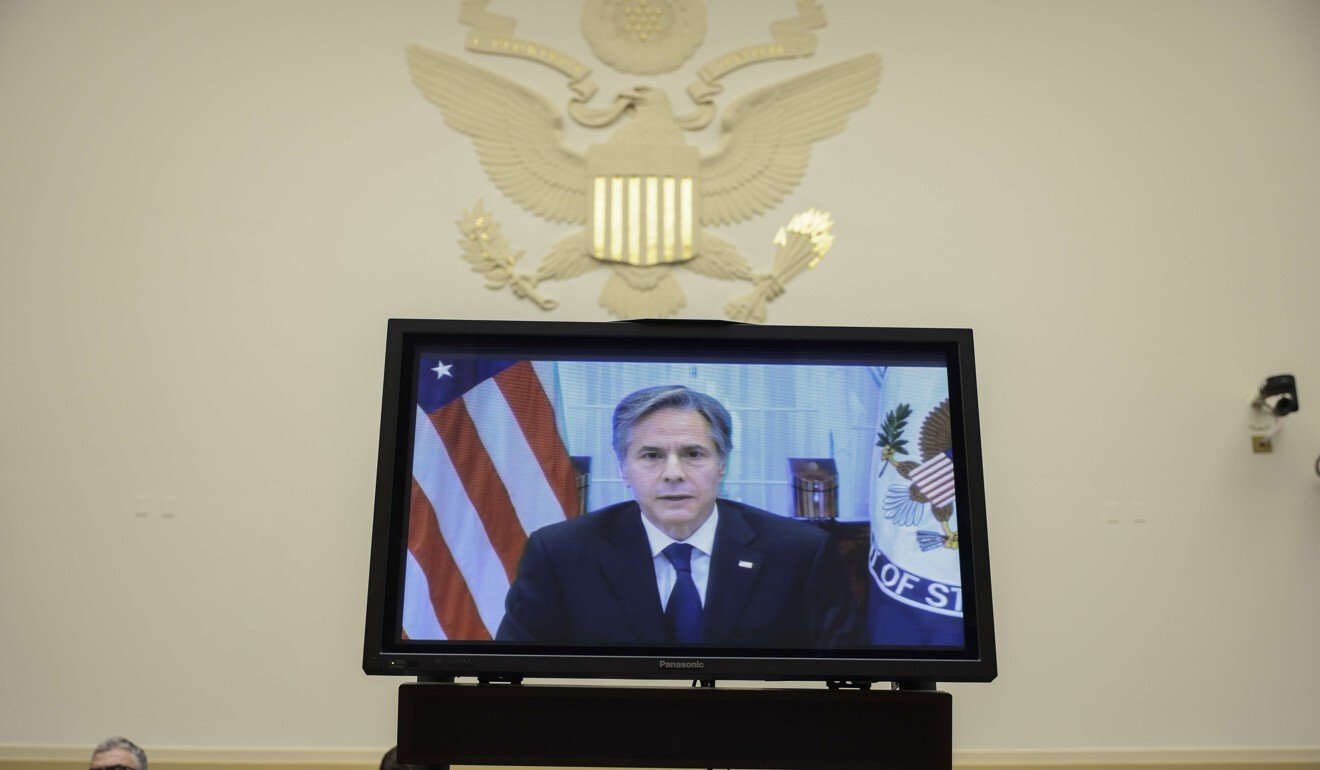
Joe Biden invites leaders of Australia, India and Japan to White House for Quad summit next week
- It will be the first in-person meeting for Biden, Australia’s Scott Morrison, India’s Narendra Modi and Yoshihide Suga of Japan
- The four met virtually in March, when they discussed China’s military build-up in the Asia-Pacific
The first in-person meeting of the Quad’s leaders – Biden, Australian Prime Minister Scott Morrison, Indian Prime Minister Narendra Modi and Japanese Prime Minister Yoshihide Suga – will take place on September 24, White House press secretary Jen Psaki announced on Monday.
“The Quad leaders will be focused on deepening our ties and advancing practical cooperation on areas such as combating Covid-19, addressing the climate crisis, partnering on emerging technologies and cyberspace, and promoting a free and open Indo-Pacific,” she added.

01:19
After Quad summit discusses China threat, Beijing says ‘cliques’ drive wedge between countries
Tensions between Washington and Beijing in the western Pacific region that Psaki referenced – where China has laid claims of sovereignty that Washington has rejected – have escalated.
Nato says China presents ‘systemic challenges’, vows to counter its rise
In a July speech about the drawdown of US troops in Afghanistan, Biden said maintaining a military presence there “was not in the national interest of the United States of America to continue fighting this war indefinitely”.

“We also need to focus on shoring up America’s core strengths to meet the strategic competition with China and other nations that is really going to determine our future,” he added.
US Secretary of State Antony Blinken reiterated that rationale on Monday as he testified before the House Committee on Foreign Affairs about the withdrawal.
“There is nothing that strategic competitors like China and Russia – or adversaries like Iran and North Korea – would have liked more than for the United States to re-up a 20-year war and remain bogged down in Afghanistan for another decade,” he said.

